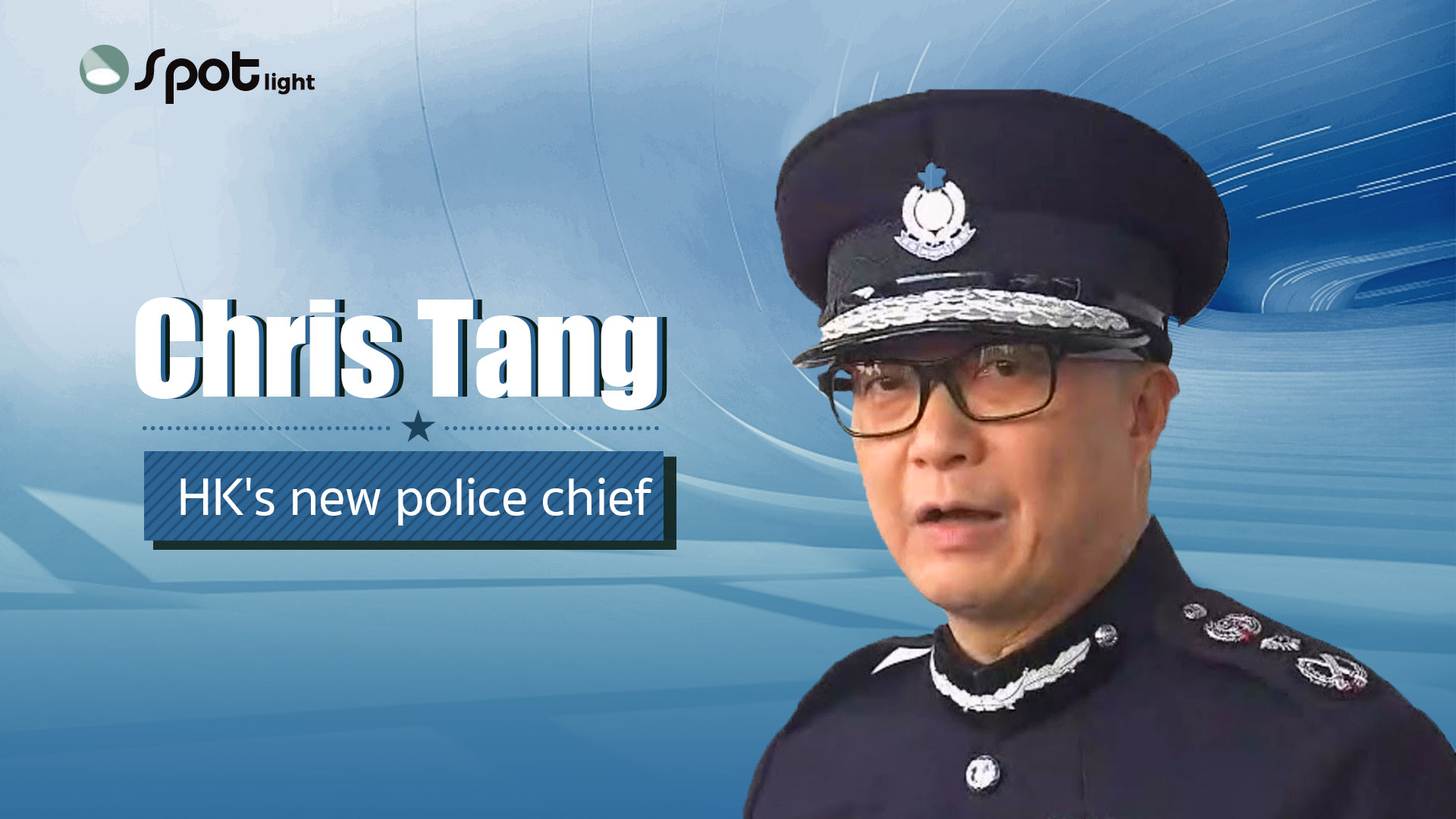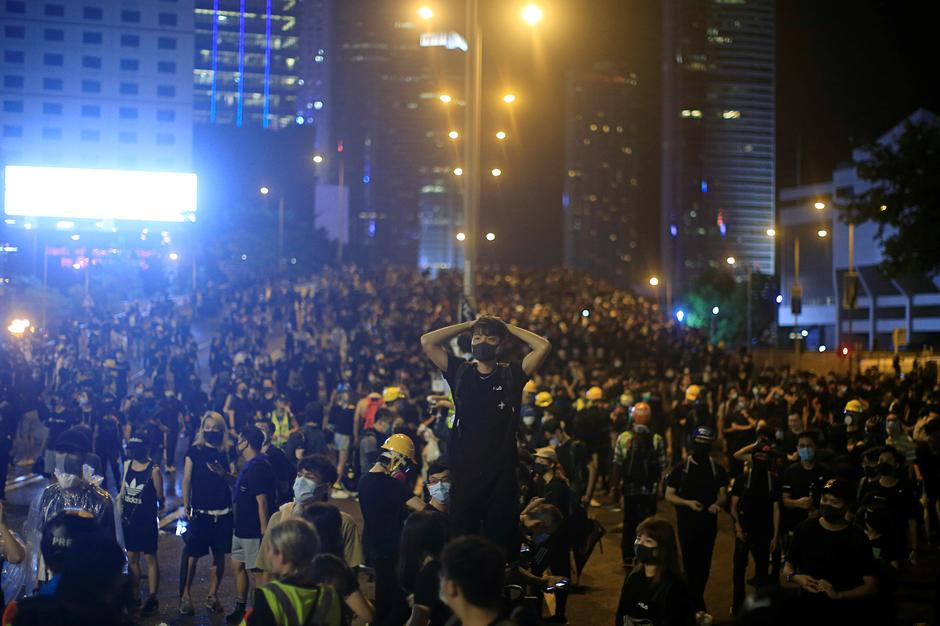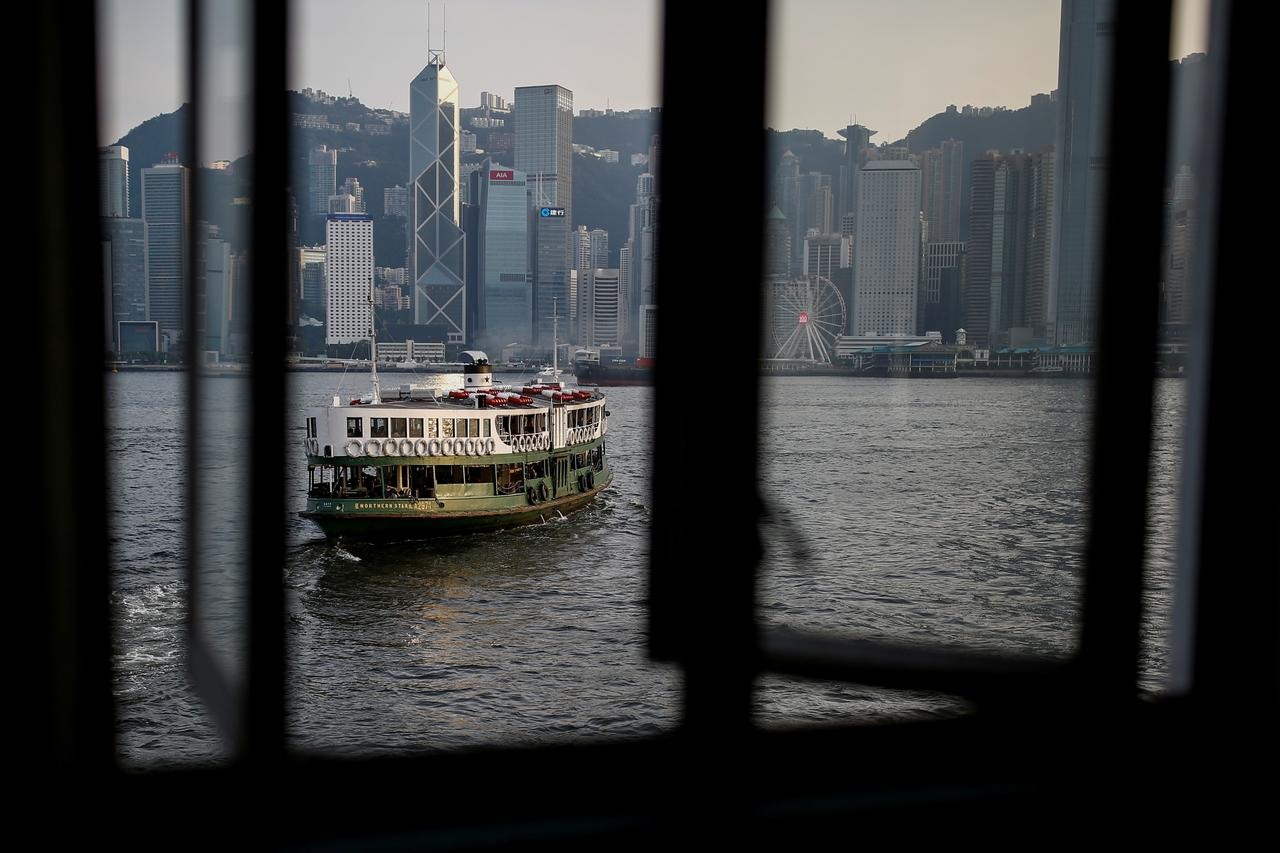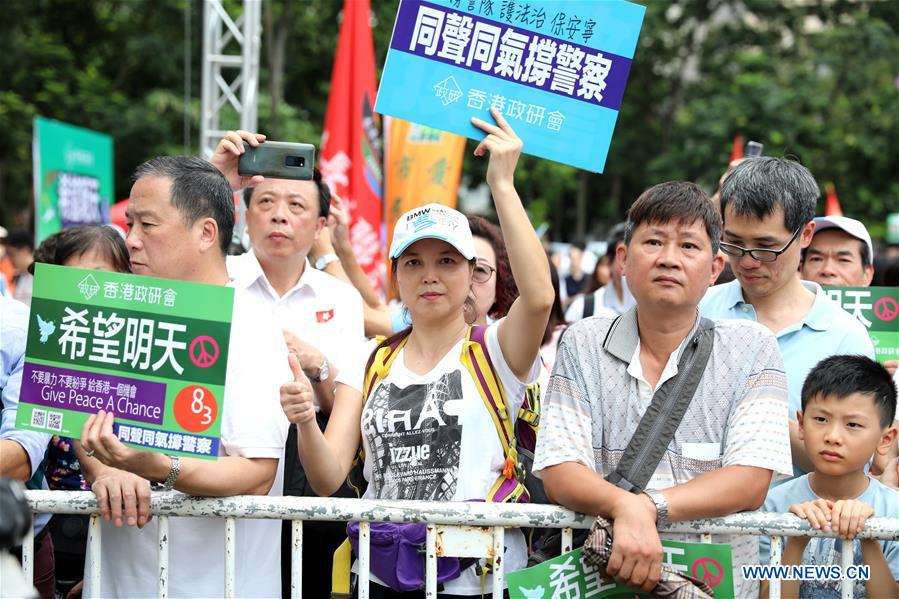04:38

When starting a new job, there are always challenges and concerns. What do I want to achieve? What's expected of me?
And context matters. How's the institution doing? What's the broader environment?
For Chris Tang Ping-keung, sworn in as Hong Kong's new police commissioner on Tuesday, those tests are amplified a thousand times.
With Hong Kong bracing for the district council elections on Sunday, all eyes are on whether the polling will proceed smoothly. "To ensure the safety and the order of the elections is our duty," Tang told CGTN reporter He Weiwei during an interview on Saturday, adding that there will be sufficient police officers, a high-profile police patrol in surrounding areas, and a contingency plan in place to handle unforeseen circumstances.
Entrusted in a time of crisis
A year ago, when the plan for the 54-year-old to succeed Stephen Lo Wai-chung was agreed, heading the Special Administrative Region's 31,000-strong police department presented a very different prospect.
Lo had drawn plaudits for reducing the SAR's crime rate and Tang, previously Lo's deputy, was positioned to build on his legacy.
But fast-forward to this weekend, and Hong Kong is on edge.
The force Tang oversees is engaged in daily attempts to contain violent aspects of a protest movement that sprang up in June in opposition to a now withdrawn fugitive bill.
Its officers have come under scrutiny and attack, while chaos on the streets has become an unwanted norm.

Protesters march in Hong Kong, China, August 18, 2019. /Photo via Reuters
Protesters march in Hong Kong, China, August 18, 2019. /Photo via Reuters
Hong Kong has since slumped to twentieth in the Economist Intelligence Unit's 2019 Safe Cities index.
Tang was already deeply involved as the lead officer in "Tiderider," the operation tasked with dealing with the protests.
Now, as police chief, he has a huge task ahead of him: Both in dealing with a situation he has described as "very close to terrorism" and in securing the backing of the Hong Kong people.
"Enough is enough," Tang said on starting the job. "Whatever your beliefs, do not glorify and put up with violence. Do not let the mob further motivate themselves and become more radicalized."
He insisted the protests aren't an issue for the police alone, calling for greater public condemnation. "If the community can condemn the illegal act, I think it will make our enforcement more effective," said Tang.
Tang is faced with a huge challenge, not just on the streets but in hearts and minds across Hong Kong. He has acknowledged the need for the support of the public, and securing trust is paramount in this multifaceted situation. In a recent poll, 51.5 percent of respondents reported zero trust in the city's police force.

The cross harbor ferry leaves the pier in Tsim Sha Tsui in Hong Kong, China, August 22, 2019. /Photo via Reuters
The cross harbor ferry leaves the pier in Tsim Sha Tsui in Hong Kong, China, August 22, 2019. /Photo via Reuters
Who is Chris Tang?
Born in Hong Kong in 1965, Tang was educated all the way through in the city.
His career trajectory after graduating with a social science major at the Chinese University of Hong Kong in 1987 bears much resemblance to his predecessor Stephen Lo. Both started as inspectors at the police force, worked at the INTERPOL General Secretariat, and spent years receiving extensive training abroad.
From 2006 to 2008, Tang was seconded to INTERPOL in Lyon as a chief criminal officer, and then promoted to lead its Criminal Organization and Violent Unit.
As for Lo, during three years with INTERPOL from the late 1990s, he rose from liaison officer to Assistant Director of its Asia and South Pacific Branch before returning to Hong Kong in 2002.
Both were trained at a variety of security institutions, including the People's Public Security University of China and the U.S. Federal Bureau of Investigation.
Apart from extensive experience in criminal investigation, liaison and operational command, Tang underwent a rapid promotion – from assistant commissioner in 2015 to deputy commissioner in operations in 2018, succeeding veteran Alan Lau Yip-shing – a move widely viewed as a crucial step toward grooming Hong Kong's future top cop.
Lau, who played a vital role in soothing the 2014 Occupy protests, was recalled from retirement in August to tackle the escalating protests and tensions spiraling without control in the Asian financial center.
Tang was central in dealing with protesters of the Umbrella Movement in 2014 and was in charge of the security of Chinese President Xi Jinping during his visit to Hong Kong in 2017.

People take part in a rally to denounce violence and support police force at Victoria Park in Hong Kong, China, August 3, 2019. /Xinhua Photo
People take part in a rally to denounce violence and support police force at Victoria Park in Hong Kong, China, August 3, 2019. /Xinhua Photo
Over the past few months, he has appeared on the frontlines of Hong Kong Polytechnic University and Causeway Bay, dealing with rioters who have thrown the once placid city into turmoil.
After Tang's promotion, the Hong Kong Police Force changed its motto from "We serve with pride and care" to "Serving Hong Kong with honor, duty, and loyalty" – the first change in over 20 years.
The switch has been interpreted by some analysts as a sign that Tang will be a hardliner in dealing with rioters, adding to a reputation he and deputies Raymond Siu Chak-yee and Oscar Kwok Yam-shu have earned as the three hawkish musketeers.
Tang has come out as a strong advocate for the police force and a vocal critic of those, who were slow to condemn the violence. "There is no single way or single measure to end the violence, or it should be ended already. The point is in view of what the protesters are doing, we have to adopt different strategies and different tactics," Tang told CGTN. What those tactics actually entail will be closely watched.
Reporter: He Weiwei
Article written by: John Goodrich, Wang Xiaonan
Video edited by: He Weiwei, Wang Kailin
Cover image by: Jia Jieqiong
Supervisor: Zhang Shilei